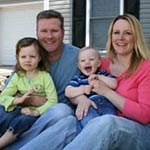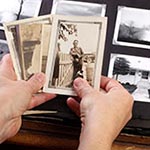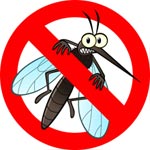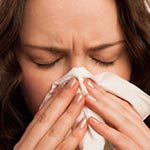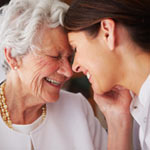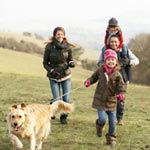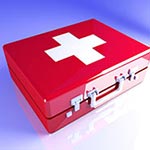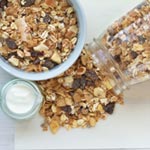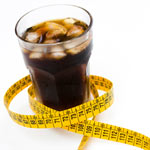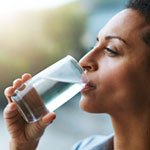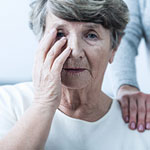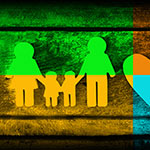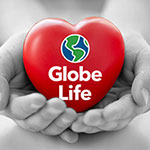Top Tips For Bone Health For Women

It’s a natural part of life for bones to begin to lose their density and become thinner with age. As this happens, the risk of injury rises as does the expected recovery time following an injury. Osteopenia, bone thinning, commonly occurs in women during their senior years. However, there are some preventative measures you can take to stay healthier longer and lower your risk of injury.
One of the most important things you should do is eat foods that are rich in calcium, which will help combat bone thinning. Think beyond dairy products too. Salmon and sardines contain calcium, as do leafy green veggies such as broccoli. If you don’t consume dairy products at all, calcium fortified soymilk, orange juice and tofu make excellent choices.
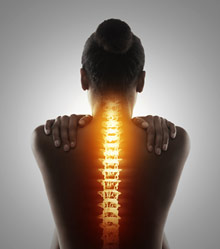
Another great way to help strengthen your bones is through strength training. Working out with barbells, dancing, tennis, running, jogging and stair climbing are all great for building bone strength. If you’re already worried about weak bones and need a more low-key form of strength training, then try walking or low-impact aerobics. People who aren’t physically active have a higher risk of osteoporosis.
Additionally, it’s a good idea to have a bone mineral density test so that your doctor can determine your risk of fracture and osteoporosis. The test, called DEXA, is a painless x-ray of your bones. Women approaching menopause should have a DEXA test to access bone density but you may choose to have one earlier if there are other factors that raise your risk of osteoporosis.
You should also be aware that tobacco has been linked to loss of bone mineral density. Studies have shown that people who smoke regularly have lower bone density when compared to non-smokers. Likewise, too much alcohol can prevent your body from absorbing nutrients which can lead to poorer bone health. Two or more alcoholic beverages a day can increase your risk of osteoporosis.
Be sure to always get enough vitamin D in your diet. Vitamin D helps your body absorb calcium contributing to healthier bones. Vitamin D can come from the sun, but even regular time in the sun isn’t going to provide enough. Taking a vitamin D supplement daily is the best way to ensure you’re getting enough Vitamin D to give yourself stronger, thicker bones. The recommended dose for adults ages 19-70 is 600 IUs per day. Good food sources of vitamin D include fortified milk and fish high in oils such as sardines and tuna.
Being either too overweight or too underweight can also affect your overall bone health. Recent studies have shown that visceral fat (deep belly fat and fat around your organs) and lower bone mineral density are linked. In addition, being underweight increases your risk of fracture and bone loss as well. Therefore, it is best to maintain a healthy weight in order to avoid increasing your risk of bone loss.
Women who are post-menopausal, over the age of 65, have relatives with bone density loss or who have suffered a broken bone after the age of 50 are all at a greater risk for fractures. So too are women with certain medical conditions such as arthritis or hyperthyroidism. Speak with your doctor early on about your risks for developing low bone density. You may also want to discuss how certain medications might contribute to your bone health and if taking medication for bone health is the right choice for you.
You might also be interested in...
-
 10 Cheap Activities For Family Fun Night
10 Cheap Activities For Family Fun Night
-
 8 Habits that Could Be Hurting Your Marriage
8 Habits that Could Be Hurting Your Marriage
-
 The Benefits Of Coconut Milk
The Benefits Of Coconut Milk
-
 Top Tips For Bone Health For Women
Top Tips For Bone Health For Women
-
 Caring for Both Your Children and Your Parents
Caring for Both Your Children and Your Parents
-
 Debunking Common Relationship Myths
Debunking Common Relationship Myths
-
 Family Life Insurance for Young Families
Family Life Insurance for Young Families
-
 Five Expensive Home Improvement Projects that Won’t Boost Value
Five Expensive Home Improvement Projects that Won’t Boost Value
-
 Five Home Improvement Projects that Pay Off
Five Home Improvement Projects that Pay Off
-
 Health Benefits Of Cashews
Health Benefits Of Cashews
-
 Help Your Aging Parents Prepare for Retirement
Help Your Aging Parents Prepare for Retirement
-
 How to Get the Grandkids to Help with Chores
How to Get the Grandkids to Help with Chores
-
 How to Prepare a Family History for the Younger Generations
How to Prepare a Family History for the Younger Generations
-
 Is Herbal Medicine The Way To Go
Is Herbal Medicine The Way To Go
-
 Natural Mosquito Repellants
Natural Mosquito Repellants
-
 Planning Ahead: Family Life Insurance
Planning Ahead: Family Life Insurance
-
 How To Prevent The Common Cold And Flu Virus
How To Prevent The Common Cold And Flu Virus
-
 Taking Care Of The Caregiver
Taking Care Of The Caregiver
-
 Ten Best Fruits, Vegetables, and Herbs Families Can Grow at Home
Ten Best Fruits, Vegetables, and Herbs Families Can Grow at Home
-
 Ten Tips for Successful Single Parent Families
Ten Tips for Successful Single Parent Families
-
 Top 10 Health And Safety Tips For Fall And Winter
Top 10 Health And Safety Tips For Fall And Winter
-
 Top Ten Household Safety Tips
Top Ten Household Safety Tips
-
 Why All Women Need Life Insurance Too
Why All Women Need Life Insurance Too
-
 Why you should go on vacation
Why you should go on vacation
-
 Who Should Be Your Beneficiary
Who Should Be Your Beneficiary
-
 The Benefits Of Vitamin B
The Benefits Of Vitamin B
-
 5 Reasons To Eat Homemade Chicken Noodle Soup
5 Reasons To Eat Homemade Chicken Noodle Soup
-
 6 Healthy Breakfast Ideas
6 Healthy Breakfast Ideas
-
 5 Tips To Prepare For Allergy Season
5 Tips To Prepare For Allergy Season
-
 Unusual Ways To Keep Your Mind Sharp
Unusual Ways To Keep Your Mind Sharp
-
 Food That Isn’t As Healthy As You Think
Food That Isn’t As Healthy As You Think
-
 4 Things That Are Secretly Killing Your Healthy Lifestyle
4 Things That Are Secretly Killing Your Healthy Lifestyle
-
 Questions You Need To Ask At Your Next Checkup
Questions You Need To Ask At Your Next Checkup
-
 How To Make A Comeback After An Illness
How To Make A Comeback After An Illness
-
 4 Benefits Of Water Most People Don’t Know
4 Benefits Of Water Most People Don’t Know
-
 Heartfelt Advice To Avoid Heart Disease
Heartfelt Advice To Avoid Heart Disease
-
 What Is Respite Care And Are You One Of Millions Of People That May Need It?
What Is Respite Care And Are You One Of Millions Of People That May Need It?
-
 Three Tricks To Healthy Eating
Three Tricks To Healthy Eating
-
 How Important Is Estate Planning?
How Important Is Estate Planning?
-
 5 Backyard Grill Safety Tips
5 Backyard Grill Safety Tips
-
 Combining Insurance After Marriage: Updating Your Life and Health Policies
Combining Insurance After Marriage: Updating Your Life and Health Policies
-
 Top 5 Crazy Food Options at Globe Life Park, Home of the Texas Rangers
Top 5 Crazy Food Options at Globe Life Park, Home of the Texas Rangers
-
 4 Dangers of Owning an Exotic Pet
4 Dangers of Owning an Exotic Pet
-
 4 Ways Life Insurance Helps Families Plan for the Future
4 Ways Life Insurance Helps Families Plan for the Future
-
 Why Young Families Need Life Insurance
Why Young Families Need Life Insurance
-
 Reasons to Consider Travel Insurance
Reasons to Consider Travel Insurance
-
 3 Ways to Know It's Time to Increase Your Life Insurance Coverage
3 Ways to Know It's Time to Increase Your Life Insurance Coverage

 Insurance products are available in New York from
Insurance products are available in New York from  Insurance products are available in your state from
Insurance products are available in your state from 





